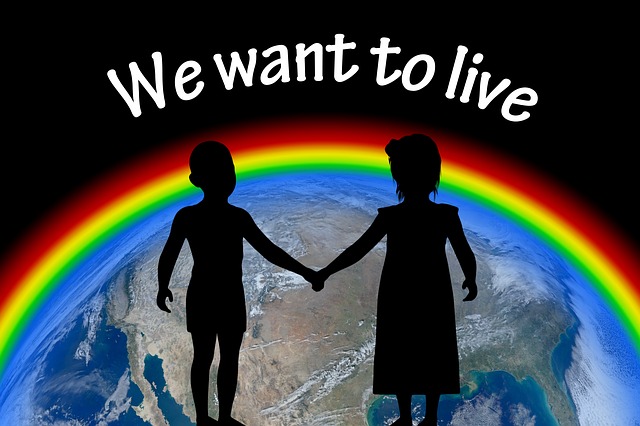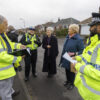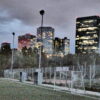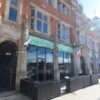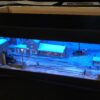Coronavirus News
Coronavirus Researchers use smartphone data to determine which businesses are potential COVID-19 ‘super-spreaders’ – CBC.ca
Researcher Oeindrila Dube is part of a team that uses anonymous phone location data to reveal which businesses are most likely to facilitate the spread of coronavirus, from restaurants to hair salons to gym.Florist Sam Solis puts together a floral bouquet for Mothers Day at his flower shop in North Vancouver. Flower shops ranked relatively…

Coronavirus
Researcher Oeindrila Dube is part of a team that uses anonymous phone location data to reveal which businesses are most likely to facilitate the spread of coronavirus, from restaurants to hair salons to gym.
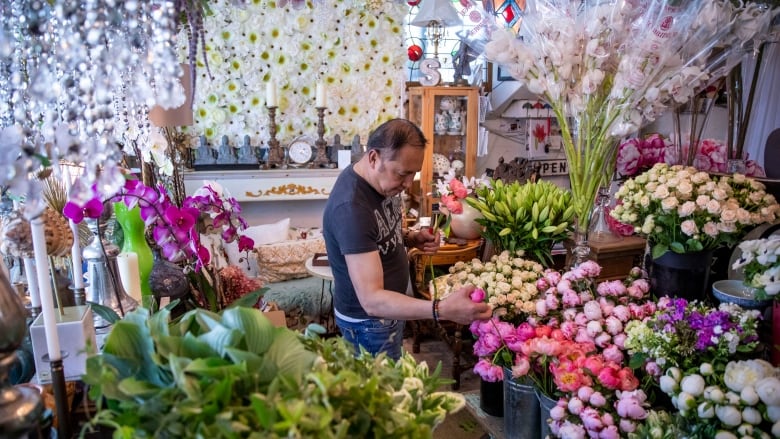
Listen7:26
A team of researchers in the U.S. is working to determine what kinds of businesses are safe to visit, and which ones could be super-spreaders of COVID-19, as select businesses reopen in parts of the country.
Oeindrila Dube, a University of Chicago professor, is part of a team using anonymous smartphone location data from April 2019 provided by U.S.-based data tracking firms Safegraph and Veraset, which gather location data primarily for market research. The data was used to power an interactive feature in the New York Times.
The team combined the data with the physical footprints of stores and businesses to determine whether customers would be tightly packed during busy hours.
They also asked people to rate how often they physically interacted with products, equipment and employees at various businesses.
“Based on that, we can essentially put the information together about the visitors per square foot, how long they’re staying and what time of day they turn up to generate a measure that’s essentially the expected number of people you can come into contact with at a given establishment,” Dube told Day 6 host Brent Bambury.
“And that’s what we call proximity risk.”
Coronavirus What to open, and when?
Dube says her team intends to learn how the risk assessment has changed over the last few months by using more recent location data that could help predict which businesses will be safer to reopen earlier than others.
“I very much believe that data can help us toward a precise and safe reopening. And in that way, yes, data is our new vaccine,” she said.
“It helps ease this ugly trade-off that we’re facing between the economic hardship of keeping everything closed, you know, and the health risks from opening everything up.”
Data can help us toward a precise and safe reopening…. Data is our new vaccine.– Oeindrila Dube
Earlier this week, Prime Minister Justin Trudeau warned the country could be sent “back into confinement” if too many businesses opened too quickly.
“The sacrifices we’ve all made of staying home, of self-isolating, of not seeing parents and grandparents could all go up in smoke, if reopening happens too quickly and Canadians have to lockdown once again because people were over-eager to get the economy going,” he said on Monday.
Leading U.S. infectious disease expert Dr. Anthony Fauci advised Congress on Tuesday that reopening the economy too quickly could lead to additional outbreaks in the country that has already seen over 81,000 people succumb to the virus.
Dube says changes in what foot traffic looks like under “business as usual” conditions compared to now could help indicate which businesses are most affected by people’s changed habits.
For example, the widespread shuttering of dine-in restaurants may lead to larger and more sustained crowds in grocery stores.
Coronavirus Risky business
Thanks to the study’s use of several factors — foot traffic, rate of physical contact and length of visits — the research may help dispel some misconceptions about which businesses are safer than others.
California, for example, allowed several types of “low-risk” businesses, including bookstores, toy stores and florists, to open earlier this month for curbside service.
According to their data, however, only flower stores rated as low-risk out of all the businesses listed. The others ranked in the top 25 per cent of COVID-19 risk.
“You might think of a bookstore as this calm place where people are sitting and reading books, but that’s exactly it,” Dube explained.
“Once they go to bookstores, naturally they stay for an extended period of time perusing books. And so that’s part of what makes them at the higher end of the risk distribution.”
As a further comparison, flower stores and barber shops rank more or less the same when it comes to foot traffic, according to the phone location data.
“Of course, barber shops are much higher on this kind of physical touching index,” said Dube.
Coronavirus Skip the gym, buy some flowers
Dube adds that gyms and fitness centres top the ranks of businesses that risk spreading COVID-19.
“Gyms are places where there are many visitors, but also they tend to stay for extended periods of time,” she said, noting that visitors will touch several physical surfaces and equipment used by other people.
Public parks rank somewhere in the middle: while people spend most of their time on park grounds outdoors, the high volume of traffic can make it a risky endeavour.
Golf courses, whose spacious greens are on the list of businesses provinces like Ontario have allowed to open ahead of the long weekend, ranked low on Dube’s list.
“Other types of businesses that don’t have very high proximity risk are nurseries and garden centres. So you could hit one of those and do some gardening,” she said.
Written by Jonathan Ore. Interview produced by Pedro Sanchez.
To hear more, download our podcast or click Listen above.

Subscribe to the newsletter news
We hate SPAM and promise to keep your email address safe


